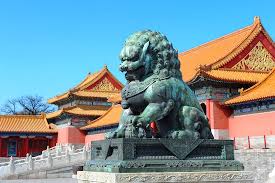Travelling independently in China has become easier. All you need to do is pluck up the courage, says Gill Charlton
I am sitting on board “Harmony”, one of China’s new generation of superfast trains, as it hurtles through the factory belt stretching almost unbroken from Shanghai to Jinhua in Zhejiang province. “It is surprising how a sunny day can turn to cloud so quickly,” says the young man sitting beside me in pitch‑perfect English.
I tell him I am on my way to the ancient village of Zhuge which I have read is a rare survival from the Ming dynasty (1368-1644). I have the name written down in Chinese characters and hope to find a taxi to take me there. But my new friend won’t hear of it. “Far too expensive,” he says. “It is better to take the bus.” I explain that my Chinese is non-existent. “Not a problem. It would be my privilege to help you.”
And so I find myself on the local bus to Lanxi which is packed out by farmers and shoppers. Lanxi may still have a small-town dot on the map but it has grown into a high-rise city with three bus stations. I’ve arrived at the wrong one for a connecting bus to Zhuge. This light-bulb moment is achieved using the Lonely Planet phrase book and advanced sign language. I spot a taxi across the road and show my crumpled sheet of paper. The driver nods and gestures for me to get in. We cruise slowly around the square as he hails other drivers. Look at this big-nosed blonde foreigner in the back of my cab, he must be saying. His friends nod and grin. And so do I.
Zhuge isn’t found in any guidebook. I came across it while browsing the internet as I made a plan to tour Shanghai’s hinterland. China’s most beautiful traditional towns and villages – those not trashed by war, revolution and the rush to modernity – have become tourist playgrounds. Hung with strings of gaudy red lanterns, they are full of “antique” shops and “homestay” guesthouses, usually run by outsiders on behalf of the government. Zhuge is far more authentic, though it does charge Y100 (£10.50) to help pay for the upkeep.
I walk down a cobbled street back into the past. Wooden shophouses surround a large pond where locals slurp up noodles outside rustic tea-houses. There are signposts in English to heritage houses. The place is a maze of alleys leading to ornate stone-carved doorways of Ming and Qing era mansions, temples and ancestral halls. The community was once very wealthy, producing famous imperial administrators and woodcarvers.
“We are still a close community; all 4,000 of us share the surname of Zhuge,” says my 21-year-old guide Ting. I met her by chance at her father’s restaurant. She had just returned from a year in Florida after being nominated by her college in Hangzhou for a placement in Disney World’s China pavilion.
